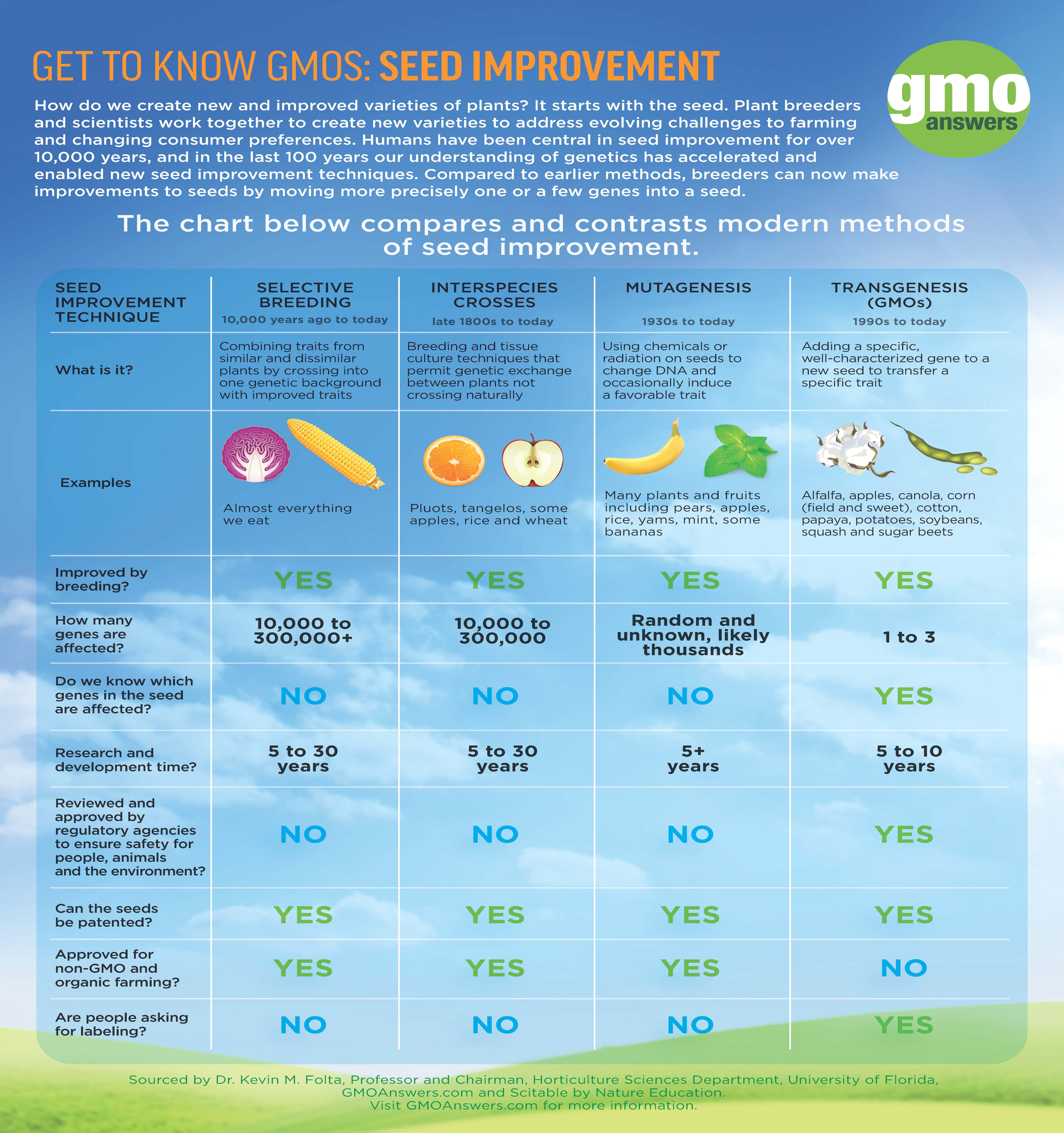Question
Are there any alternative options to GMO?
Are there any alternatives for gmo?
Submitted by: Mahaica Jacquet
Answer
Expert response from Community Manager
Moderator for GMOAnswers.com
Friday, 02/02/2018 18:21
GMO is a general term that is used to describe a genetic variation that has occurred, which not only happens in nature, but humans have been doing this through selective breeding for over thousands of years. When people refer to Genetically Modified Organisms (GMOs), they are referring to precision plant breeding using genetic engineering. It allows plant breeders to take a desirable trait (like resistance to drought, insects, weeds, and disease) from one plant or organism and transfer it to the plant they want to improve, as well as make a change to an existing trait in a plant they are developing. You may have also heard of agricultural biotechnology or biotech seeds. These are terms that may be used to refer to the same thing – a genetically modified organism (GMO).
As for alternatives, there are plenty of options. Food and food products labeled with USDA Certified Organic are examples. The use of genetic engineering, or genetically modified organisms (GMOs), is prohibited in these products. Check out more information on this topics here. You can also seek out the “non-gmo” third-party verified labels on products as alternatives.
Genetic Engineering is just one form of a breeding technique used in food production. There are a number of methods used in food production including cross breeding, hybridization and mutagenisis. See the below infographic for details about each of these modern methods.

The nutrient composition of GM crops is equal to that of non-GM crops, as this response explains in more detail.
“Foods derived from GM Crops provide the same nutrition as those from non-GM crops which mean that they provide key nutrients, proteins, and vitamins that your body needs. Testing and FDA review has confirmed this.”
This response also explains how, GMO crops are nutritionally equivalent to their non-GMO counterparts.